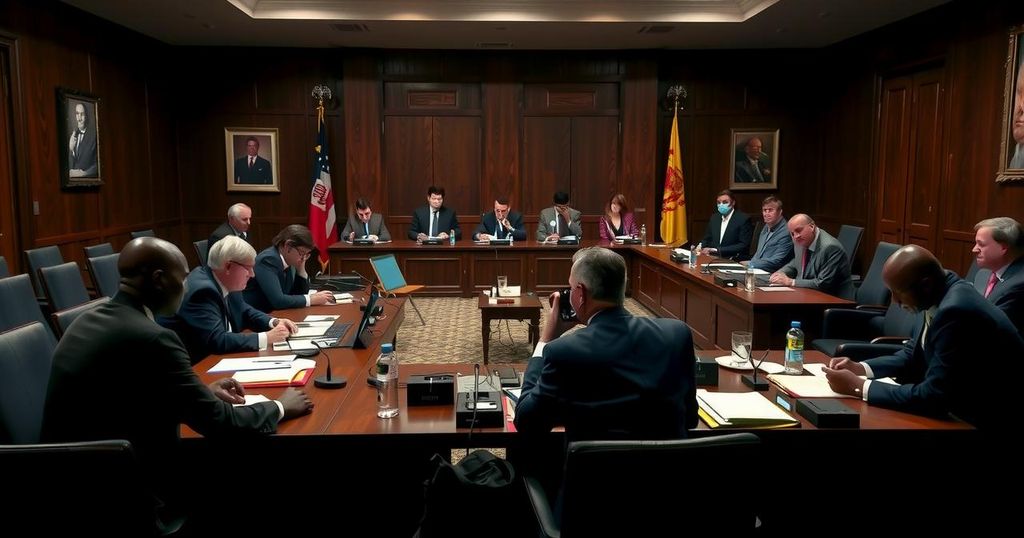President Felix Tshisekedi announced the creation of a commission to revise the Constitution of the Democratic Republic of Congo, citing its weaknesses and lack of relevance. His remarks come amidst political challenges, including delays in government formation, and a divided response from opposition parties regarding his intentions for remaining in power. The current Constitution has been in place since 2006 and last revised in 2011.
President Felix Tshisekedi of the Democratic Republic of Congo has announced the establishment of a commission aimed at revising the national Constitution in the upcoming year. During a speech to supporters in Kisangani on October 23, he expressed concerns regarding the existing Constitution, stating it has “weaknesses” and does not adequately reflect the realities faced by the nation. This initiative emerges against the backdrop of delays in forming the government and provincial assemblies, which the president attributed to “selfish interests” within the political framework of the country. The swearing-in ceremony for the government faced considerable delay, occurring nearly six months post-election due to negotiations among coalition parties striving for adequate representation in the cabinet. As it stands, over 50 ministers serve under Judith Suminwa Tuluka, the DRC’s first female prime minister, who leads amidst escalating challenges within the political landscape. The call for the Constitutional revision has been longstanding within the ruling coalition, with proclamations made by the Secretary General of the ruling party, UDPS. He reiterated recommendations made by the late party leader, Etienne Tshisekedi, advocating for amendments to the Constitution. However, this proposal has sparked controversy across the political spectrum, with opposition leaders expressing suspicion that this move is an attempt by the president to extend his term in office. President Tshisekedi insisted that discussions regarding shifts in presidential terms are purely a matter for public discourse, and not motivated by personal ambition or interests. The 2006 Constitution, which is the DRC’s third fundamental law and was ratified via referendum, was initially introduced by the 2003 government of national unity and last revised in 2011. The impending revisions could hold significant implications for the DRC’s political future.
The Democratic Republic of Congo (DRC) has experienced a tumultuous political history, with multiple changes to its constitution to better align with the evolving socio-political environment. The current Constitution, adopted in 2006, has been a point of contention, as various factions within the government argue that its provisions are outdated and insufficient to address contemporary challenges facing the nation. Furthermore, with President Tshisekedi’s current term nearing its conclusion, discussions surrounding constitutional reform are intensified by the prospect of future leadership and governance structures. This backdrop creates a fertile ground for debate about the legitimacy and future direction of the DRC’s political system.
In summary, President Felix Tshisekedi’s announcement regarding the formation of a commission to consider constitutional revisions is a significant development in the DRC’s political landscape. While the initiative aims to address perceived flaws in the current Constitution, it has also prompted concerns among opposition figures who fear it may serve the interests of the sitting president. As discussions unfold, the implications for national governance and stability remain to be seen, leaving the populace to grapple with the future of their constitutional framework.
Original Source: www.africanews.com







